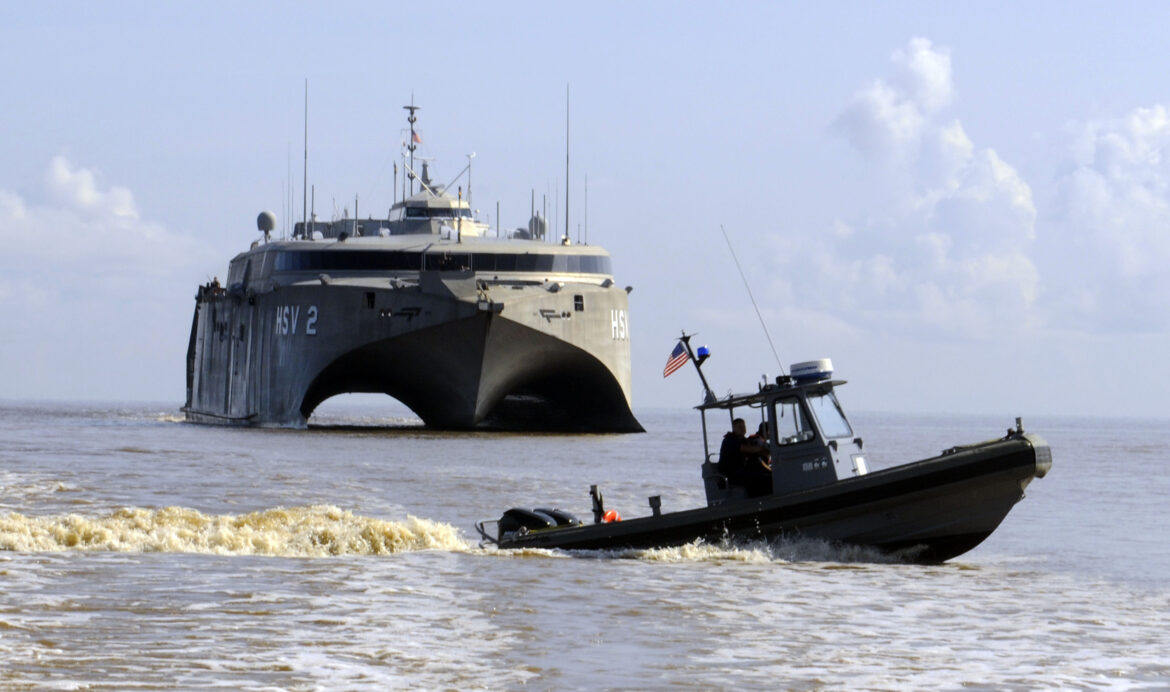On March 1st, a Venezuelan naval ship entered the waters off Guyana’s Essequibo coast. This came as part of an over century-long struggle over the Essequibo territory which forms almost two-thirds of Guyana. While Venezuela disputes accusations of the incursion, Guyana asserts it will not tolerate any attack on its territorial integrity. As tensions escalate between the two nations, how did a century-old border dispute lead to today’s crisis, why does the March 1 incursion mark a turning point, and will Guyana and its allies’ response be enough to deter further conflict?
Historical Context
Guyana and Venezuela have had a long and contentious history regarding their shared border. Venezuela first laid claim to the Essequibo territory after gaining its independence from Spain in the 19th century. However, by 1899, Guyana, then the British colony of British Guiana, was granted the territory by international arbitrators from the United States, Britain and Russia. In 1966, the same year Guyana gained its independence, the Ankoko Incursion took place. An armed group of Venezuelan soldiers and civilians invaded and occupied the part of the region belonging to Guyana and established an airstrip, post office, school, and police outposts. This, coupled with Venezuela’s claim that the 1899 arbitral award was void, prompted the signing of the Geneva Agreement between British Guiana, Great Britain, and Venezuela in 1966 to appoint a bilateral commission to seek a resolution.
However, this 1966 Agreement failed after unfruitful negotiations. Furthermore, the discovery of oil offshore Essequibo in 2015 led to increased claims from Venezuela to the Essequibo region. To combat this, Guyana filed an application with the International Court of Justice (ICJ) in 2018, instituting proceedings against Venezuela concerning the legal validity of the 1899 Arbitral Award.
Tensions escalated in 2023 when Venezuela’s President Nicolás Maduro launched a referendum vote in which voters supported the policy to make the Esequibo territory a Venezuelan state. The president also stated he would authorize oil exploration in the area. However, the issue appeared to be settled when Guyanese President Irfaan Ali and Maduro met in Saint Vincent and the Grenadines alongside representatives from the Caribbean Community (CARICOM), the United Nations (UN), and the Community of Latin American and Caribbean States (CELAC). Both countries announced in a joint statement that they would “not threaten or use force against one another in any circumstances” and “refrain, whether by words or deeds, from escalating any conflict or disagreement.”
At the start of this year, President Maduro announced that he would be hosting elections for “the people of Guayana Esequiba” to elect a governor. This decision was quickly denounced by the Guyanese government, and Venezuela was accused of breaching the terms of the Argyle Agreement signed in St. Vincent and the Grenadines in 2023. Matters were intensified in February when six Guyanese soldiers on a resupply mission were injured by an armed group in Venezuela that opened fire. According to Guyanese officials, the confrontation took place at the Cuyuni River. It was unclear if the attackers were injured or killed, but the Guyanese troops were taken back to Guyana’s capital for medical treatment. Venezuela refuted the allegations, claiming it was a “malicious narrative” meant to manipulate public opinion.
Recent Developments
The recent Naval incursion into Guyana’s exclusive economic zone (EEZ) on March 1 occurred when a Venezuelan ship advanced towards the Liza Destiny, an oil drilling facility operated by ExxonMobil off the coast of Georgetown, and claimed it was located within Venezuela’s EEZ. Later that day, the Venezuelan naval ship broadcasted live-fire military exercises on social media. This incident marked a significant intensification of Venezuela’s efforts to disrupt and intimidate Guyana’s oil exploration and extraction operations, as the area where the Liza Destiny is located was not previously part of the dispute between the two nations. Venezuela may have conducted the incursion because Exxon and its partners currently operate three oil production ships (FPSO vessels) in these waters, with a fourth, FPSO One Guyana, scheduled to begin operations soon. This would increase the consortium’s production to 940,000 barrels per day in 2025, allowing Guyana to surpass Venezuela in oil production. The March 1st incident was a clear sign that Guyana’s oil operations are at risk of Venezuelan military intervention.
After Guyana’s denouncement of the event, Venezuela repudiated the claims, stating that the territorial waters were not Guyanese but instead a “maritime zone pending delimitation in accordance with international law.” President Ali summoned the Venezuelan ambassador to express his disapproval and directed Guyana’s embassy to lodge an official protest with the Venezuelan government. In response, Caracas accused Guyana’s president of purposefully misrepresenting the ongoing conflict over the Essequibo region. The Maduro government called President Ali the “Caribbean Zelensky,” referencing the Ukrainian President who recently dominated the news after a televised clash with United States President Donald Trump.
Guyana and Partner Nations’ Response
Given the territorial tensions, the Guyanese government has taken several measures to strengthen its claim to the Essequibo region. The Minister of Home Affairs, Robeson Benn, announced that elected officials, including any Guyanese individual elected by Venezuela as Governor of Essequibo, who comes to Guyana will be arrested and charged with treason. He also announced that Guyana has deported a portion of an undisclosed number of Venezuelan secret agents. He concluded a security conference by urging the Guyana Police Force to be alert and prepared to respond to any armed invasion into the Essequibo area.
President Irfaan Ali stated that Guyana’s international partners have been alerted of the situation. In a statement by the Bureau of Western Hemisphere Affairs, the United States warned against further invasions, calling the incursion “unacceptable and a clear violation of Guyana’s internationally recognized maritime territory.” The US Ambassador to Guyana, Nicole Theriot added by stating that the US stands firmly with Guyana against any attacks from the Maduro administration.
Other countries who have stood with Guyana concerning the March 1 incident include the G7 nations. In a joint statement, the foreign ministers of France, Canada, Italy, Japan, the United Kingdom, Germany, the United States, and the European Union restated their support for Guyana and called on Venezuela to cease its coercive operations. The Caribbean Community (CARICOM) also released a statement denouncing Venezuela’s actions, referring to them as “acts of aggression and provocation contrary to international law and the 2023 Argyle Declaration.”
Challenges Ahead
Most recently, President Maduro has called for an in-person meeting with the President of Guyana. However, Guyana’s Vice President, Dr. Bharrat Jagdeo, told reporters there are no current plans to accept Maduro’s request as the meeting’s fit for Guyana’s national security interests needs to be assessed. In either case, a refusal to address the conflict may have serious implications. Venezuela outweighs Guyana in terms of economic and military power, with Guyana having only 3,400 active military personnel compared to Venezuela’s 123,000 active-duty personnel, plus 220,000 paramilitaries and gendarmes. Additionally, despite their vocal support for Guyana, it remains uncertain whether the United States will commit to providing aid to Guyana in the future, given the US’ recent decision to freeze and significantly reduce aid to several countries in surrounding areas. Ultimately, a solution to the border dispute will be largely dependent on Venezuela and Guyana’s willingness to commit to mutually agreed-upon policies that respect each country’s right to sovereignty.
This is an article written by a Staff Writer. Catalyst is a student-led platform that fosters engagement with global issues from a learning perspective. The opinions expressed above do not necessarily reflect the views of the publication.
Edited by Alex Ritch

Theresa Decius-Timothée is in her fourth and final year at McGill University, currently pursuing a B.A. in Honours Political Science and a minor in International Development Studies. She is passionate about international relations, migration, and comparative politics in Canada and the Global South, with a focus on the Caribbean and Latin America.

